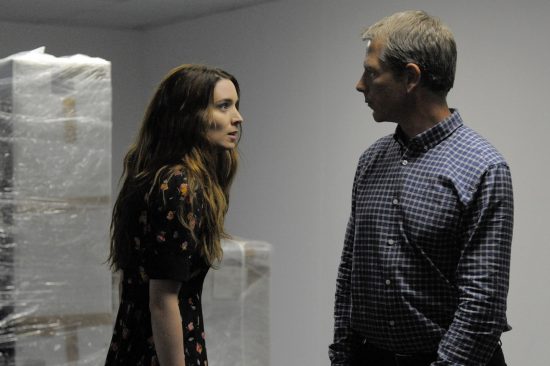Review: Una – “One of the year’s most compelling films”
Cinematic adaptations of theatre pieces are a tricky affair. Tackling the screen version of a play may have seemed a comfortable choice for acclaimed West End director Benedict Andrews’ first foray behind the camera. Yet, translating the material for a different medium is actually a rather challenging task, which Andrews has remarkably pulled off.
Adapted by David Harrower from his own critically acclaimed and award-winning play Blackbird – retitled Una to much more cinematically symbolic effect – the film’s eventual weaknesses, if anything, are to be found in the writing more than anything else. However, it’s way more interesting to focus on what the filmmakers did right as there is indeed a lot of compelling stuff to be found here.
Truth is that when your story’s main theme is as controversial as paedophilia, your storytelling skills require an extra layer of sensibility and care in handling such a delicate and difficult subject. In that respect Una does an egregious job at demonising the act no matter what, even if the perpetrator spends the entire film trying to convince his now grown up victim that he never acted on innate impulses based on grooming and premeditation. He genuinely fell in love with Una, our protagonist, and she indeed has been the only minor he has ever had sex with (hence the pun contained in the film’s title).
The man in question, Ray (a riveting Ben Mendelsohn), was the best friend of Una’s father and their neighbour. He took advantage of her when she was 12 and now a fully-fledged woman (portrayed by the always hypnotising Rooney Mara), Una pays an unexpected visit to Ray, fifteen years later. But why would she want to do that? That’s the film’s other main narrative thread within a story whose main concern is certainly not its rather thin plot but the complexity behind one of man’s most despicable crimes.
After having served his time in prison, Ray has resurfaced into society but has moved somewhere else with a new identity. Newly named Pete, he has been working for a construction company and successfully so. In fact, it’s his appearance in a newspaper article’s crew photo that fortuitously reveals his whereabouts to Una. The staggering discovery leads the overwhelmed girl to show up at his work place unannounced and the unexpected visit obviously turns the man’s world upside down.
To add more tension to the drama, Una seems to have chosen the worst possible day for Ray as the man, who now has a managerial role at the company he works for, is supposed to speak at a major meeting to announce restructuring and subsequent job cuts to his crew. That’s why the majority of the film takes place within the company’s building – a huge and quasi labyrinth-like warehouse – where Una and Ray play a sort of cat-and-mouse game in which they wind up dragging the man’s boss and another colleague, once Ray leaves the meeting amidst tensions to chase after Una.
This is evidently a structural inheritance from the source material, a one-act play whose claustrophobic feel seems to have been fully preserved by this cinematic adaptation. Unfortunately, I haven’t been lucky to see the original piece at the theatre but it’s not difficult to guess which narrative devices belong solely to the film version. The present day timeline is in fact interspersed with flashbacks so that when Ray and Una’s confrontation leads them to reminisce, we get to see the past rather than just hear it from them.
As effective and unique to the tools of film editing as this narrative choice is, it also breaks the taut pacing of the main event at play, and the little subplot involving Ray’s colleague Scott (Riz Ahmed) contributes to the uneven rhythm. Yet, Mendelsohn and Mara’s spellbinding performances draw you in so intensely to these characters’ drama that you forgive and forget the flaws of the surrounding narrative.
This character-study is bold storytelling, which submerges the audience in the stark atmosphere of the protagonist’s life. She is damaged goods, a tortured and restless soul who still lives with her mother and meanders through life, trying to numb the pain with meaningless night club’s casual sex. Finding Ray is as shocking as it is a much-needed propeller to finally get the closure she never had. But will she be able to find that peace? And what is the truth behind Ray’s actions back in the day? The man is now married to a woman who obviously has no clue of his toxic past and Una can’t even fathom the idea he has got a new lease on life whilst her own has remained stuck into the aftermath of his horrible actions.
Mara is as mesmerizing as ever playing this broken young woman who is practically trapped inside her 12 years old self. Whilst Mendelsohn brilliantly masters the ambiguity of his characters’ motives all the way to the very end which opens the Pandora’s box of social debate. No matter how things play out in the epilogue, Una still has to live with the consequences of that life-changing past. Managing to confront the cause of her pain is only the starting point towards processing it. The filmmakers make that clear through poignant storytelling choices which make Una one of the year’s most compelling films, in spite of or maybe exactly because of its scathing subject.











